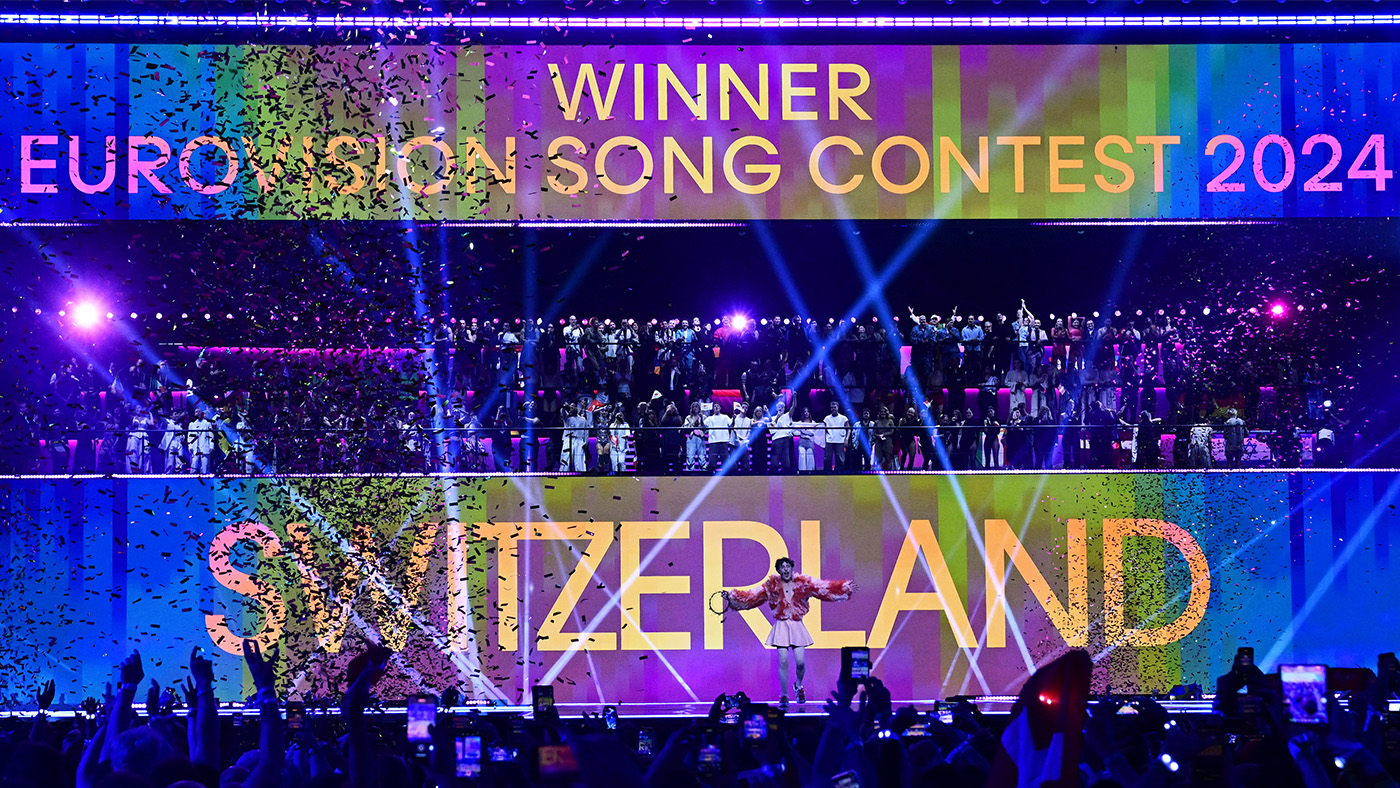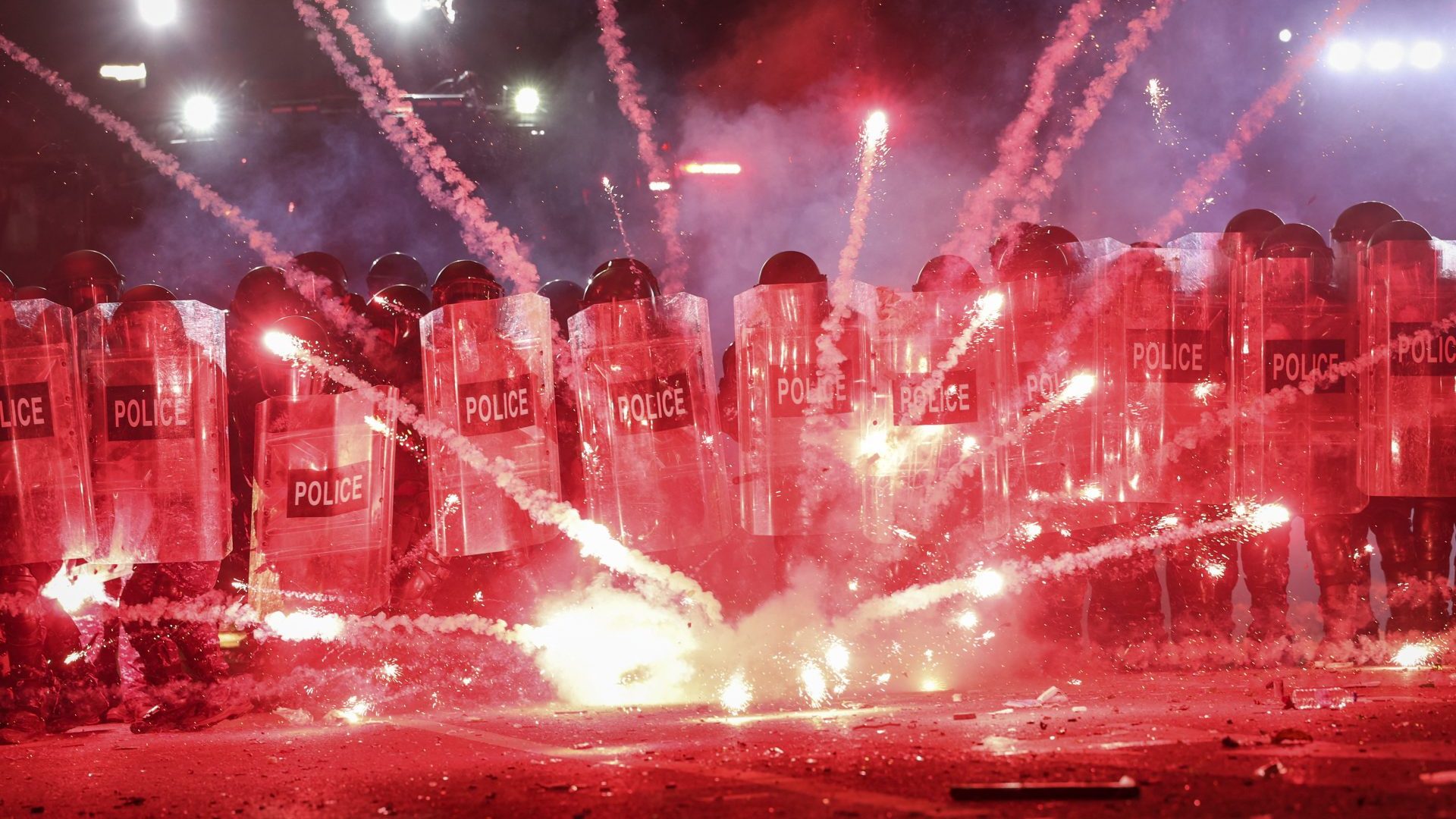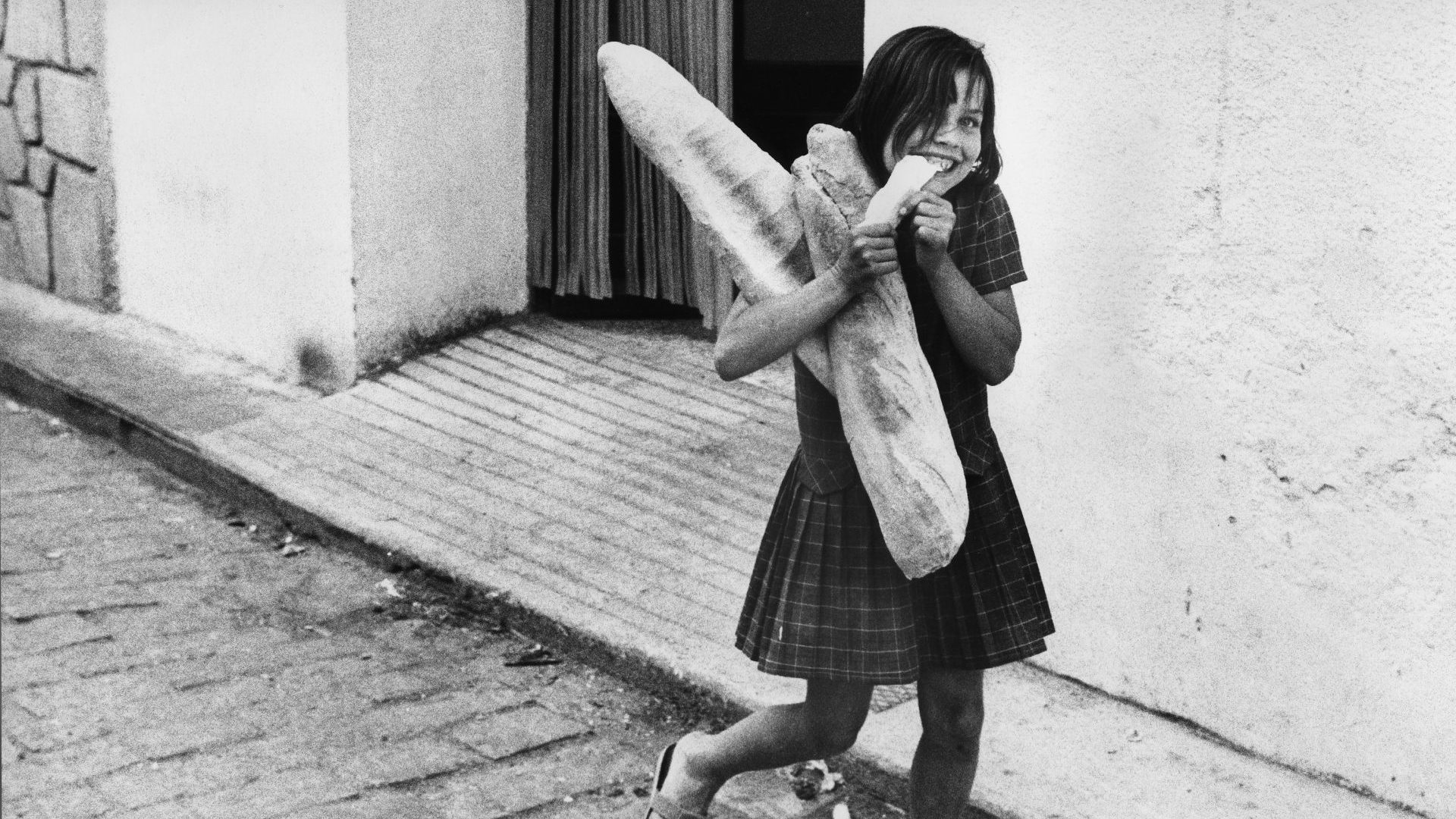It was confirmed by referendum on November 24 that Basel will indeed be hosting the next Eurovision contest. The Swiss singer Nemo won it this year back in May, and the winning country automatically gets the right to host the next contest – but nothing can be taken for granted in Switzerland.
It’s not that Switzerland does not care about Eurovision. The competition is multilingual, middle of the road musically, and tending towards neutrality – it’s Switzerland incarnate. When Nemo won, there was a quiet sense of elation in Switzerland. It was the country’s third victory and the first since 1988, when the competition was won for Switzerland by a certain Céline Dion (yes, she is Canadian).
But the problems started with Nemo’s 2024 victory. Eurovision has become increasingly political. In 2023, the competition became a four-hour protest against Russia’s invasion of Ukraine, and this year there were demonstrations outside the venue in Malmö over Gaza.
There were three Swiss contenders to host the next contest: Geneva, the most international city; Zurich, its largest city; or Bern, its capital.
The choice of Basel, a city a little larger than Oxford, was probably a good one. Basel has a long history of tolerance, having hosted many exiles over the years, including Nietzsche, Jung, Karl Jaspers and Hermann Hesse.
Back in September, the legislature of the Canton of Basel approved a sum of £30m of funding and in most countries that would have been the end of it. Not in Switzerland. There was already resistance to Eurovision being held here and the opposition was moving faster than the government.
In July, the right wing party, the Federal Democratic Union (FDU), announced that they would force a referendum, whatever the choice of city. It’s a fringe party that wins little over 1% of the vote in federal elections and pledges to uphold Christian values. It holds just two seats in the National Council, one of the two houses of the federal parliament.
The party argued that not only is Basel’s financial commitment to Eurovision a total waste of money, but also that Eurovision discriminates against Christianity.
As an example, it cited the case of a previous Swiss entry by the Salvation Army group that was not allowed to use this name, and accused the competition of “actively supporting occult and satanic performances”. In this regard, they pointed to Bambi Thug, the group that represented Ireland in 2024. Bambi Thug are probably grateful for the extra publicity.
Forcing a referendum at the canton level is not too difficult, as you simply need to collect 2,000 signatures in support of your motion. As all the signatories had to be local, the FDU organised supporters from around the country to go to Basel to sign up. On October 28, they submitted their petition with more than twice the required number of names.
The canton of Basel-Stadt (actually it is a half canton) then added this referendum to several others scheduled for a vote on November 24. In the event, Basel’s population were unconvinced by the arguments against Eurovision. Two-thirds voted in favour of going ahead with the funding.
This tussle over Eurovision highlights something fundamental about Switzerland. On the one hand, the federation has always been liberal, creative and even anarchic, as demonstrated in its being the home of the Dada art movement, the forerunner of Surrealism.
On the other hand, Switzerland didn’t give women the vote until 1971. The country somehow weds these two contradictory strands in a somewhat uncomfortable union through its decentralised, federalised system of direct democracy -– both elements constantly twirling around each other. The result is a country that’s simultaneously both fundamentally liberal and conservative at the same time.
Ivan Hutnik lives and writes in and out of Chablais in Swiss Romande



